Every musical has a mind, a soul, and a body. The mind is the idea that the show explores, either directly or through allegory. For example, “tradition versus modernity” or “chess as a microcosm of global conflict” or “boy do we like cats”.
The soul is the music, a particular sonic package of emotions with nuance and cultural specificity, offered for our entertainment and occasional moments of rapture.
The body (in this metaphor) is the plot, a succession of events driven by sympathetic characters chasing some end. Characters hurdle walls (or hurtle into them) en route to their hearts’ desires, singing as they go. Crucially, a plot requires a world that’s governed by understandable cause and effect, even if the rules differ from those of our own world.
Just as a human mind needs a body, a musical’s theme must be expressed in a particular storyline, lest the show just become a concert or revue. Fiddler on the Roof concerns the theme of tradition-versus-change, embodied in the tale of a conservative rural milkman who has to adapt to his daughters’ increasingly radical marriage plans — while contending with a threat to his community from without.
Fiddler’s plot is driven by choices and consequences. Tevye gives permission for daughter number one to marry a poor boy, irking her prior fiancee Lazar Wolfe, who causes a ruckus at the wedding which is subsequently crashed by the Tsar’s goons. Worse, this emboldens daughter number two to pursue the heterodox love of her dreams. And so on. Cause begets effect, sometimes unpredictably (we love surprises!) but always understandably (we dislike confusion).
Fiddler engages us in part because we empathize with the characters’ wants. But also because we understand the world those characters inhabit, and can anticipate dire consequences. We’re familiar with love and antisemitism and superstition and stubbornness and hurt pride and 20th century history. We have a sense of what’s going on, and what could possibly happen.
But imagine if halfway through Fiddler a rescue team from the Russian underground arrived to usher the villagers to safety. Or if Tevye suddenly revealed his skills of hypnosis and brainwashed the occupying soldiers into becoming sympathetic Orthodox Jews. Or if Hodel turned out to be the lost son of an American tycoon, who (after a catchy self-introductory number) bribed the Tsar to make Anatevka a protected historical site.
These plot twists wouldn’t just be surprises — they’d destablize our sense of what is and isn’t possible in the world of the story. We’d shrug and say okay, I guess that can happen. And at that point our suspense would dissipate. We’d sense the good intentions of the show, but be utterly at sea where plot is concerned. We’d have no idea what might be next for our characters, and therefore we wouldn’t know what to feel.
Which brings us to Spellbound.
A magical beginning
Big picture: this is an animated movie musical, descended from the traditions of Disney (Alan Menken wrote the music) and Pixar (John Lasseter was a producer) but animated by Skydance and distributed by Netflix. It concerns 15-year-old Ellian, princess of a magical kingdom where people fly around on giant winged cats, who quests to restore her parents, who have been turned into (literal) monsters by a dark spell.
Things get off to a good start. The opening premise is interesting, presented in a snappy number sung to us directly like a teen addressing social media followers. Plus it carries real emotional weight: Ellian has to cover up for the nonfunctional monarchs (who run amok around the castle, barely kept in check by guards wearing protective padding) and must take over many of their duties of state. She misses out on hanging with her friends and otherwise enjoying teen life.
Not only does Ellian want her life back, she genuinely loves and misses her folks. In a touching ballad she reminisces about her happier childhood, and her lost bond with mom and dad. All this works, thanks to entertaining visuals and a strong vocal performance by Rachel Zegler.
An intriguing ending
We only understand what Spellbound is truly about towards the end. I won’t reveal the secret here — I’ll save that discussion for the “spoiler zone” at the end of this article. (You’ll get ample warning so you can avert your eyes if needed.) For now I’ll say that the story explores interesting territory that’s unusual for a Disney-esque princess musical, and may provide real catharsis for some in the audience.
In other words, the film’s mind (to use our opening metaphor) is an opinionated one, and delivers its message with unmistakable clarity — eventually.
That big part in the middle
The problem is the plot, a.k.a. the story’s “body”. This is where Spellbound falters. The show is about a very specific dynamic in family relations, told largely through allegory. The allegory is the payload of the movie, its raison d’etre, what the writers clearly want to get across. Sadly, the film is so eager to deliver a message that it neglects plot coherence, robbing the story of efficacy as anything but an allegory.
If I had to give a non-spoilery overview: Ellian seeks advice from two wood-dwelling oracles (affably characterized by Tituss Burgess and Nathan Lane), who reveal that to un-enchant her parents the princess must follow a trail of magical lights to a magical swimming pool or something. Ellian herds monster-mom, monster-dad, a royal advisor, and the obligatory feisty pet into a dark magical woods, chased by the castle guard staff. Along the way, things happen, leading to a confrontation that sheds light on the heart of the family relationship. (Sorry to be vague. Again, I’ll get into more details at the end.)
Ellian initially escapes the guard posse by using the oracles’ magical fob, a tongue-in-cheek take on the classic magic wand. Actually, her fiesty pet uses the fob, effortlessly creating obstructions and otherwise facilitating their getaway. This raises all kinds of Plot 101 type questions. Can the magic fob do anything? How do Ellian and/or her pet know its use and limitations? Couldn’t they just use it to teleport themselves to their destination?
The show is full of magical stuff, following rules we can’t know or understand, all the way to the climax of the story. As a result, we have no real idea what’s possible or not. After a while we’re mired in the aforementioned sense of okay, I guess that can happen. We start to see the story as a series of events, this happens then that, rather than a logical progression of consequences.
Note that magic per se doesn’t make a story confusing. There was plenty of magic in The Little Mermaid and Beauty and the Beast, but the rules of enchantment were laid out clearly: be kissed by so and so by such a deadline or remain forever as a such and such. The magic created the situation, set the stakes, and dictated the success conditions. Not so with Spellbound.
Even the emotional climax at the magic pool suffers from feeling over form, symbolism over plot. We get what’s happening allegorically — we understand what the characters are expressing to one another — but we’d be hard-pressed to answer what the hell is physically going on right now?
Dear reader, I am not nitpicking the plot of a children’s movie out of malice. Please don’t imagine me as flicking popcorn at the screen while snarling, “that could never happen in a real magical kingdom!” The Little Mermaid is one of my favorite films of all time. If anything, I’m biased towards animated musicals set in magic kingdoms. But the more magical a story is, the more clear its rules need to be — especially in musicals, where emotional experience of the stakes is everything.
What’s my motivation?
Another problem: Spellbound’s characters often act in ways that make no sense outside an allegory. In one scene, Ellian and her monster-mom perform a daring aerial rescue of a giant flying kitten, earning gratitude from its parents and tribe. It’s a touching moment, to be honest, though this might be because I’m a sucker for cats.
But anyway the kitten had two grown flying cat parents nearby. Why on Earth didn’t they, who can natively fly and are presumably good at it, not rescue their own child, instead leaving the task to two barely-airborne strangers? (The answer is that the writers needed a literal save-the-cat moment to create family bonding.)
Likewise, when the castle guards do catch up to their quarry, they try to cage the royal monsters, purportedly to take them far away from the kingdom where they’ll do no harm. That sounds fine, except that this capture takes place in an isolated mountain range beyond a dark enchanted forest. The monsters are, at that moment, in the middle of nowhere and maximally far from anywhere they might do harm. Why bother caging, gagging, and relocating them? (Answer: the writers needed to set up a Beauty-and-the-Beast-style pseudo-battle scene.)
The story is rife with these two issues: 1) our having to accept each new magical thing as it happens, and 2) characters making confusing decisions.
Good music though
So what about the soul?
The worst thing I can say about anything Alan Menken does is that it’s not as outstanding as his past work, and that’s a sky-high bar over which to pole vault. Menken’s craftsmanship is consistently superb, and he seems able to effortlessly navigate the lexicon of 20th century popular music to find inspiration. “My Parents Are Monsters” is an affable world-establishing song, and the lovely nostalgia ballad “The Way It Was Before” effectively establishes Ellian’s driving need. (Points to the animators for a creative visual segue into this number.) My personal favorite might be “Step by Step”, for its rhythmic and melodic vitality.
But Menken and his capable lyricist Glenn Slater are limited by the lack of story coherence. When cause and effect are vague and hand-wavy, characters are deprived of compelling subjects about which to sing. The songs in the middle are either dissastisfyingly general (e.g. “Follow the Light”) or throwaway numbers that don’t have any real story impact (“I Could Get Used To This”). Solid as music, often featuring deft lyrics, but weak as emotional storytelling.
This isn’t the music team’s fault. They’re both master dramatists, and listening to them discuss their creative process at the screening I attended, I learned how they tried to influence the story in a positive direction. But starting with the film’s second act, the music either spins its wheels or ends up as sung literal dialogue, like the transcript of a therapy session.
Mind-body dichotomy
Spellbound deserves praise for exploring tough ground in family relationships, for its inspired character performances, and for giving some very talented creatives a chance to do their thing. But in the end it fails to construct a coherently-plotted story for its message, which reduces the film to a dramatized allegory rather than the satisfying musical tale it could have been.
Bonus: The secret ending and its implications
Be forewarned that hereafter is a spoiler zone. If you don’t want the film’s secrets revealed, you’re done reading! You may move on, with my gratitude.
At the end of the film, we learn that the parents were transformed into monsters as a physical manifestation of their dysfunctional, quarrelsome relationship. They resolve to split up, which in modern terms means divorce. Ellian expresses her rage in the song “What About Me”. Her folks realize that they forgot to reassure their daughter that they’d love her no matter what. They do so, which calms the situation down.
The ending is a bit pat; how the parents equally rule a monarchy while living in towers across town from one another is beyond me. But there’s a good message here: change happens, and we can’t always go back to the way things used to be.
I say that the message is good, though I’d hesitate to call the ending good per se. As I non-spoileristically implied earlier, the climactic events are very confusing if interpreted literally. We understand the sentiment in the final, story-resolving songs, but we don’t really understand how we got there, what the giant magical pool represents when poured on someone’s head, and so on.
It’s also not clear whether this is Ellian’s story, or that of her parents. Though Ellian has her own issues, the parents drive the resolution, and the conflict is ultimately about their relationship. By the end, Ellian feels like a passenger in her own tale. As a result, while the overall structure of the film is interesting and thought-provoking, emotionally Spellbound isn’t fully satisfying as a story or musical.




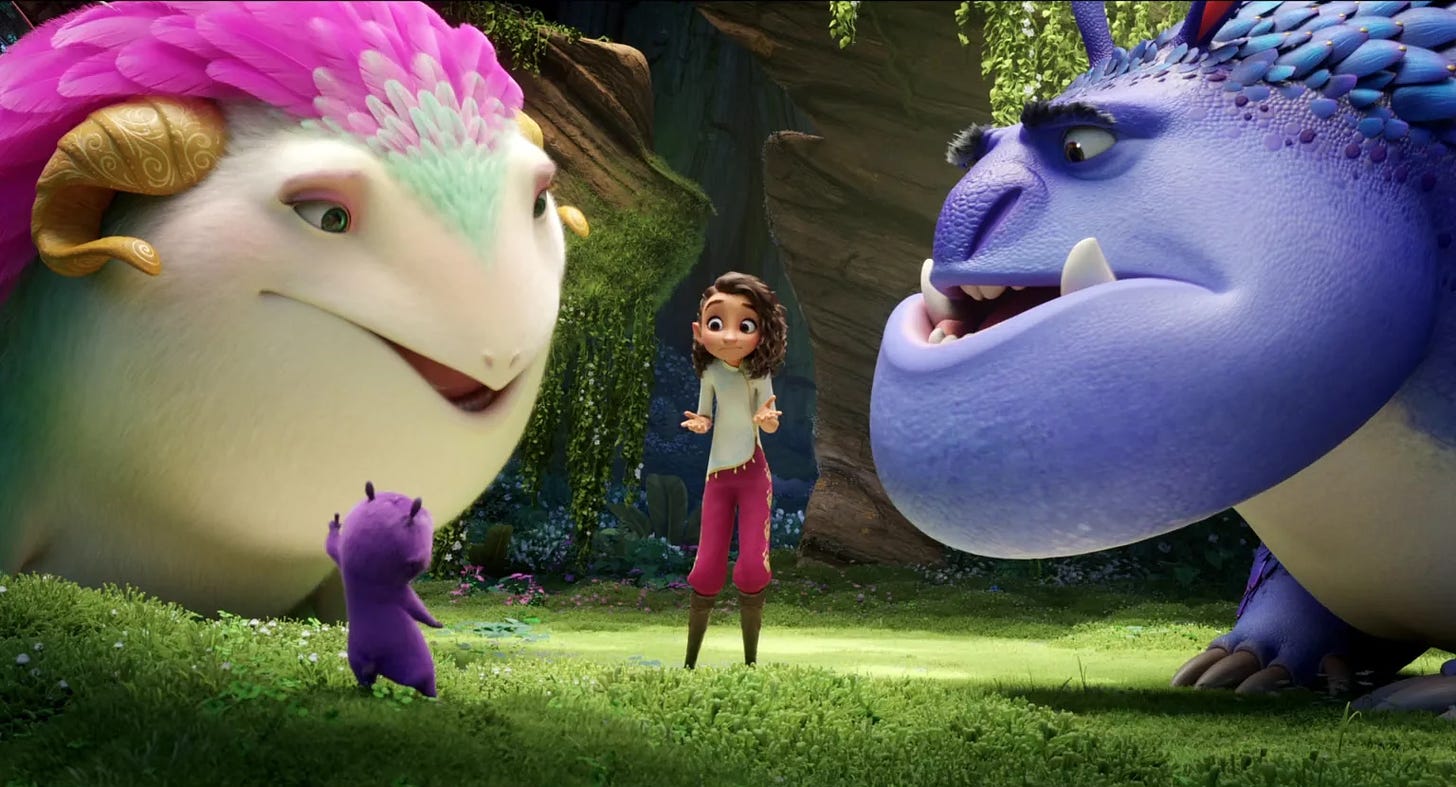
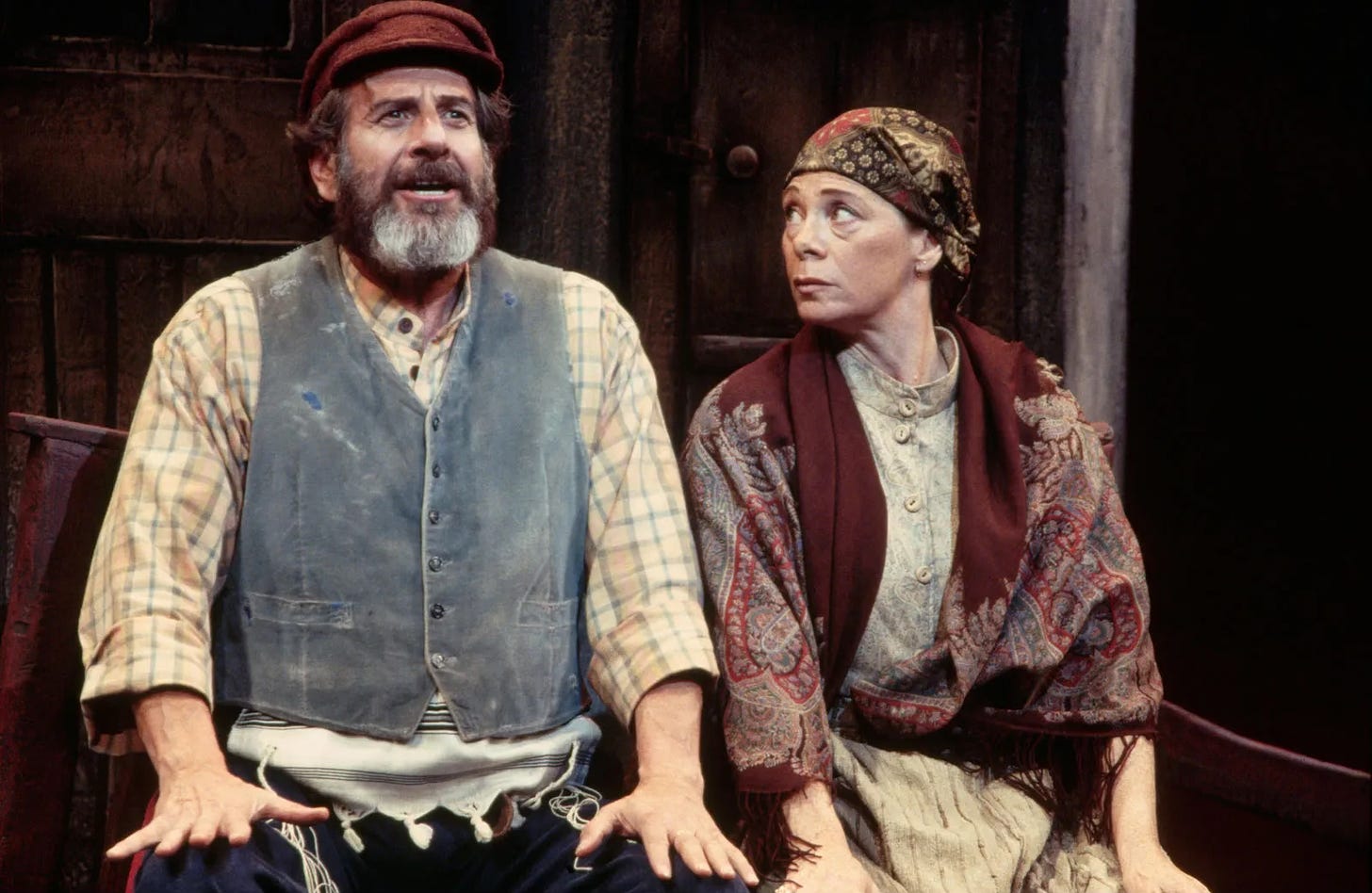
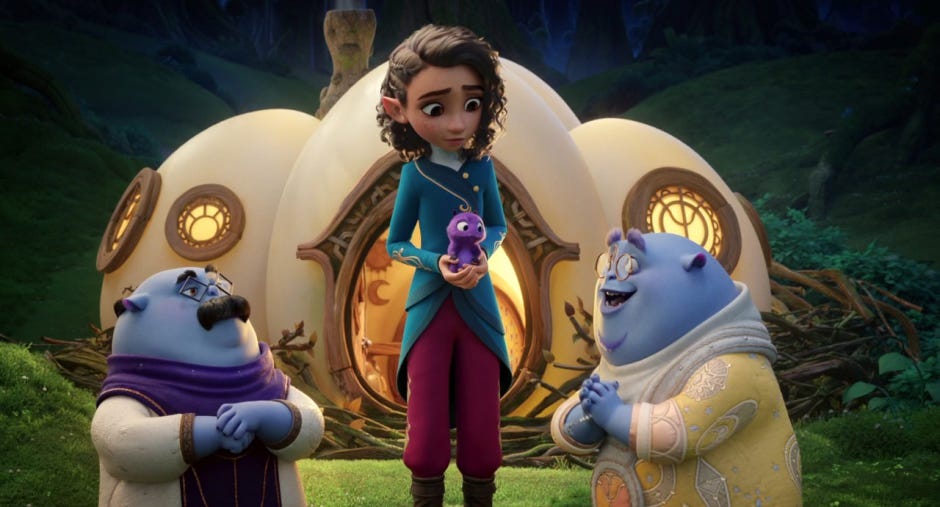
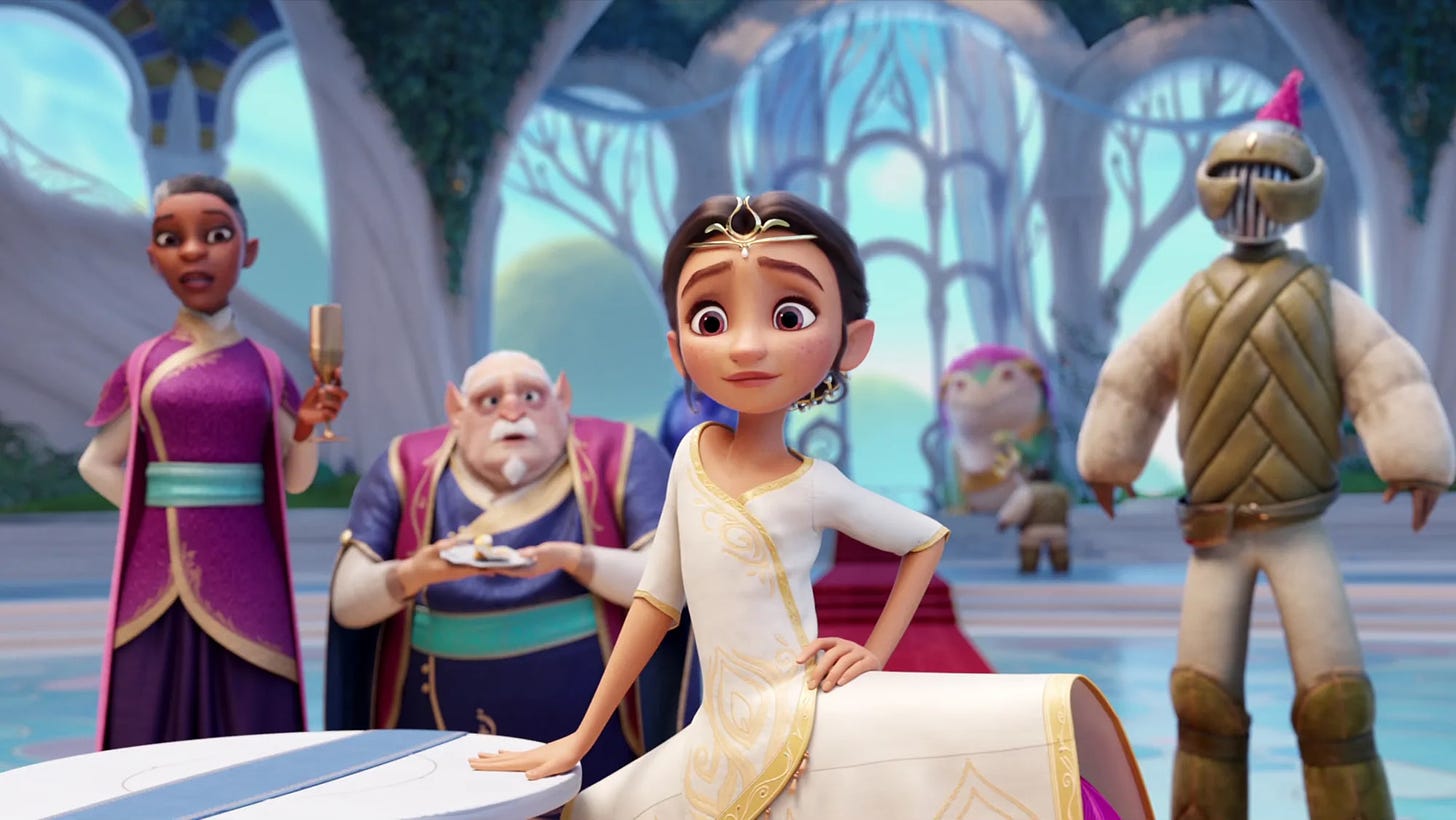
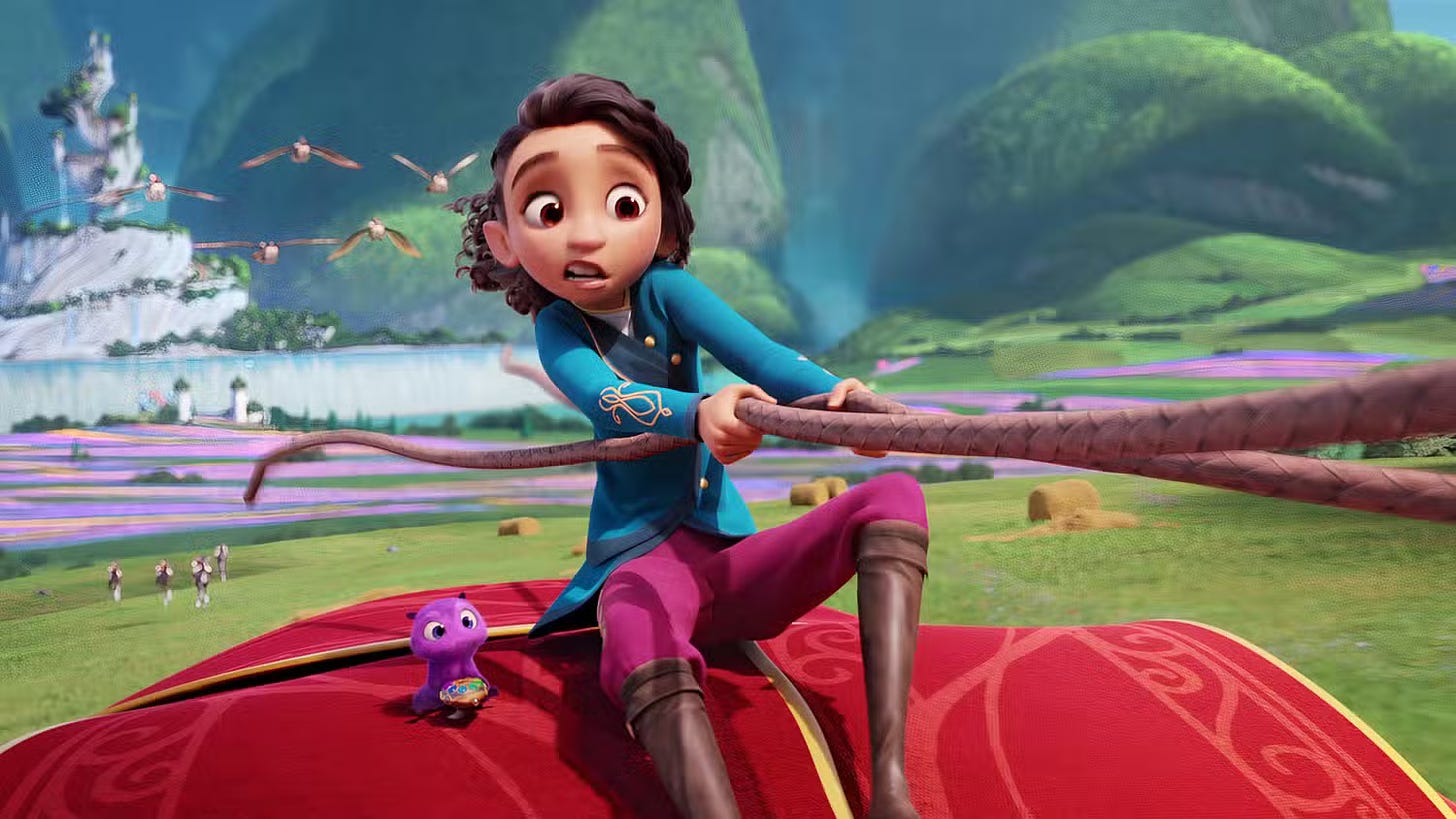
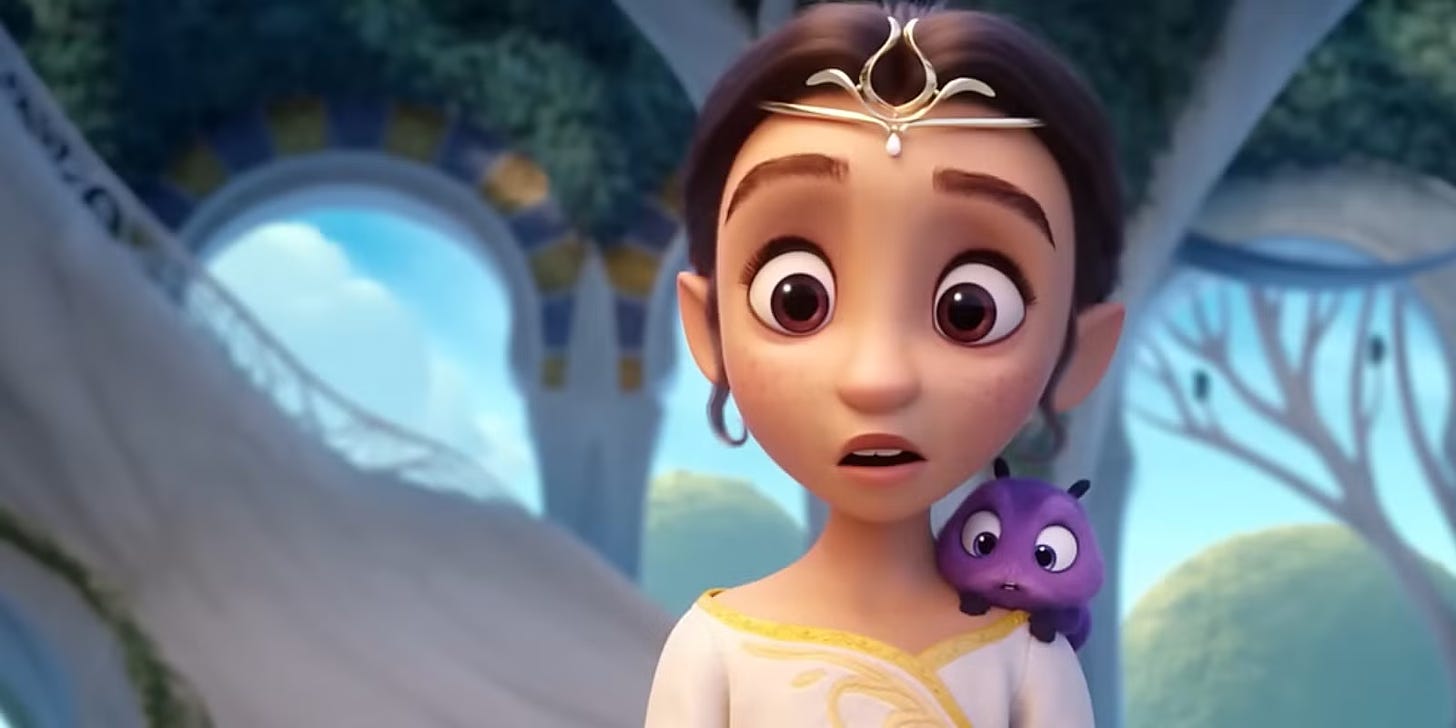
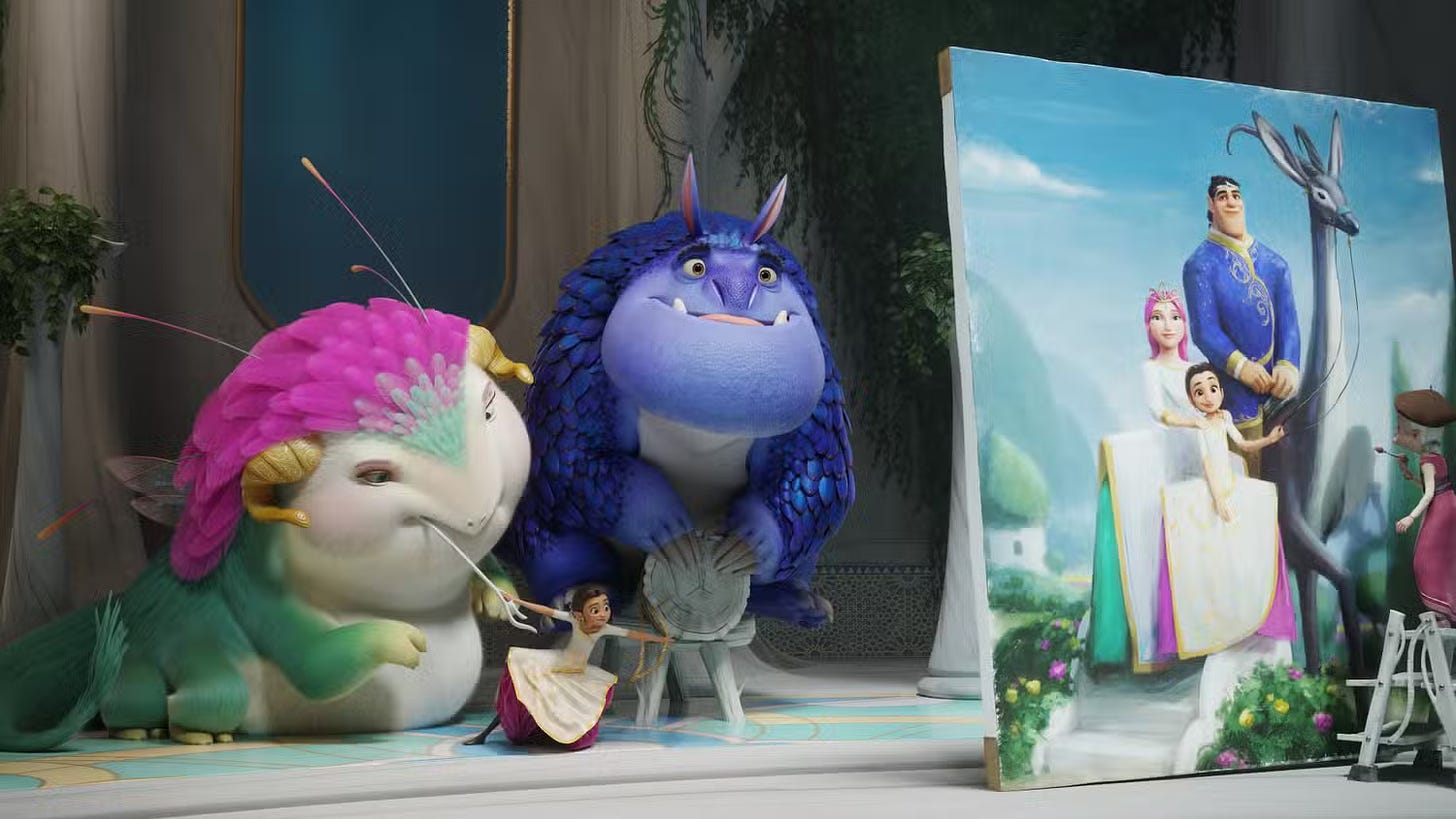
I like this mind/body/soul structure! I hadn’t thought of stories like that before. It works for a novel, too, except soul would probably be writing style (prose and dialogue both) in place of music. I’ll be pondering that.